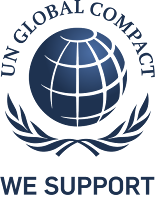Tweaking firms' social responsibility
Ki Nan Tsui, Somruedi Banchongduang
Can social responsibility be a real force for change in the corporate world? Or is it just a publicity fad?
Make no mistake about it. The first priority of any business should be making a profit, Kasikornbank CEO Banthoon Lamsam said at the launch of the Corporate Social Responsibility Institute at the Stock Exchange of Thailand yesterday.
"How can a company grant any social assistance without first being able to survive?" he asked.
Yet, as consumers become more aware of the affects of business on the country's social and environmental fabric, corporate social responsibility ceases to be only a function of the Public Relations Department. "Profit maximisation alone can be unsustainable in the long run," said Siam Cement Group vice president Roongrote Rangsiyopash.
Companies that deal with scarce natural resources - be they SCG's limestone or PTT's oil and natural gas - must weigh the trade-offs carefully, said Thaipat Institute director Pipat Yodprudtikan. The think-tank head said if somebody else could use the resources better, creating more value or less waste, then the way should be open to those others.
Corporate social responsibility is a process and thus requires continuity, Pipat said. Responsibility to both the environment and society should be treated with the same reverence as turning a profit.
However, corporate social responsibility should emanate from the inside of an organisation, or as Government Pension Fund secretary-general Visit Tantisun-thorn put it, it should be a company's "core value".
That, too, can be difficult to achieve.
PTT Research and Technology Institute executive vice president Songkiert Tansamrit believes in a concerted effort orchestrated by chief executives. Roongrote says the whole value chain must be engaged. But to guarantee any strategic continuity, accountability must come into play, as well. Now there is talk of finding the best ways to gauge and assess corporate-social-responsibility projects.
"Money is not the issue here. It cannot buy a network of employees," said Siam Commercial Bank president and CEO Kannikar Chalitaporn. If 20,000 employees could go home and convince their families of the importance of corporate social responsibility, then awareness could be created among hundreds of thousands, she argued. But the movement has yet to achieve such a critical mass.
The most popular misunderstanding is that corporate social responsibility translates as donations.
But holistically, it can stem from the smallest of business changes. Take the option for customers to print out transaction slips at all SCB ATM machines. That initiative saves not only trees, but about Bt10 million a year for the bank.
Perhaps taking environmental and social well-being seriously is what businesses should be aiming at.
[Original Link]
Can social responsibility be a real force for change in the corporate world? Or is it just a publicity fad?
Make no mistake about it. The first priority of any business should be making a profit, Kasikornbank CEO Banthoon Lamsam said at the launch of the Corporate Social Responsibility Institute at the Stock Exchange of Thailand yesterday.
"How can a company grant any social assistance without first being able to survive?" he asked.
Yet, as consumers become more aware of the affects of business on the country's social and environmental fabric, corporate social responsibility ceases to be only a function of the Public Relations Department. "Profit maximisation alone can be unsustainable in the long run," said Siam Cement Group vice president Roongrote Rangsiyopash.
Companies that deal with scarce natural resources - be they SCG's limestone or PTT's oil and natural gas - must weigh the trade-offs carefully, said Thaipat Institute director Pipat Yodprudtikan. The think-tank head said if somebody else could use the resources better, creating more value or less waste, then the way should be open to those others.
Corporate social responsibility is a process and thus requires continuity, Pipat said. Responsibility to both the environment and society should be treated with the same reverence as turning a profit.
However, corporate social responsibility should emanate from the inside of an organisation, or as Government Pension Fund secretary-general Visit Tantisun-thorn put it, it should be a company's "core value".
That, too, can be difficult to achieve.
PTT Research and Technology Institute executive vice president Songkiert Tansamrit believes in a concerted effort orchestrated by chief executives. Roongrote says the whole value chain must be engaged. But to guarantee any strategic continuity, accountability must come into play, as well. Now there is talk of finding the best ways to gauge and assess corporate-social-responsibility projects.
"Money is not the issue here. It cannot buy a network of employees," said Siam Commercial Bank president and CEO Kannikar Chalitaporn. If 20,000 employees could go home and convince their families of the importance of corporate social responsibility, then awareness could be created among hundreds of thousands, she argued. But the movement has yet to achieve such a critical mass.
The most popular misunderstanding is that corporate social responsibility translates as donations.
But holistically, it can stem from the smallest of business changes. Take the option for customers to print out transaction slips at all SCB ATM machines. That initiative saves not only trees, but about Bt10 million a year for the bank.
Perhaps taking environmental and social well-being seriously is what businesses should be aiming at.
[Original Link]











